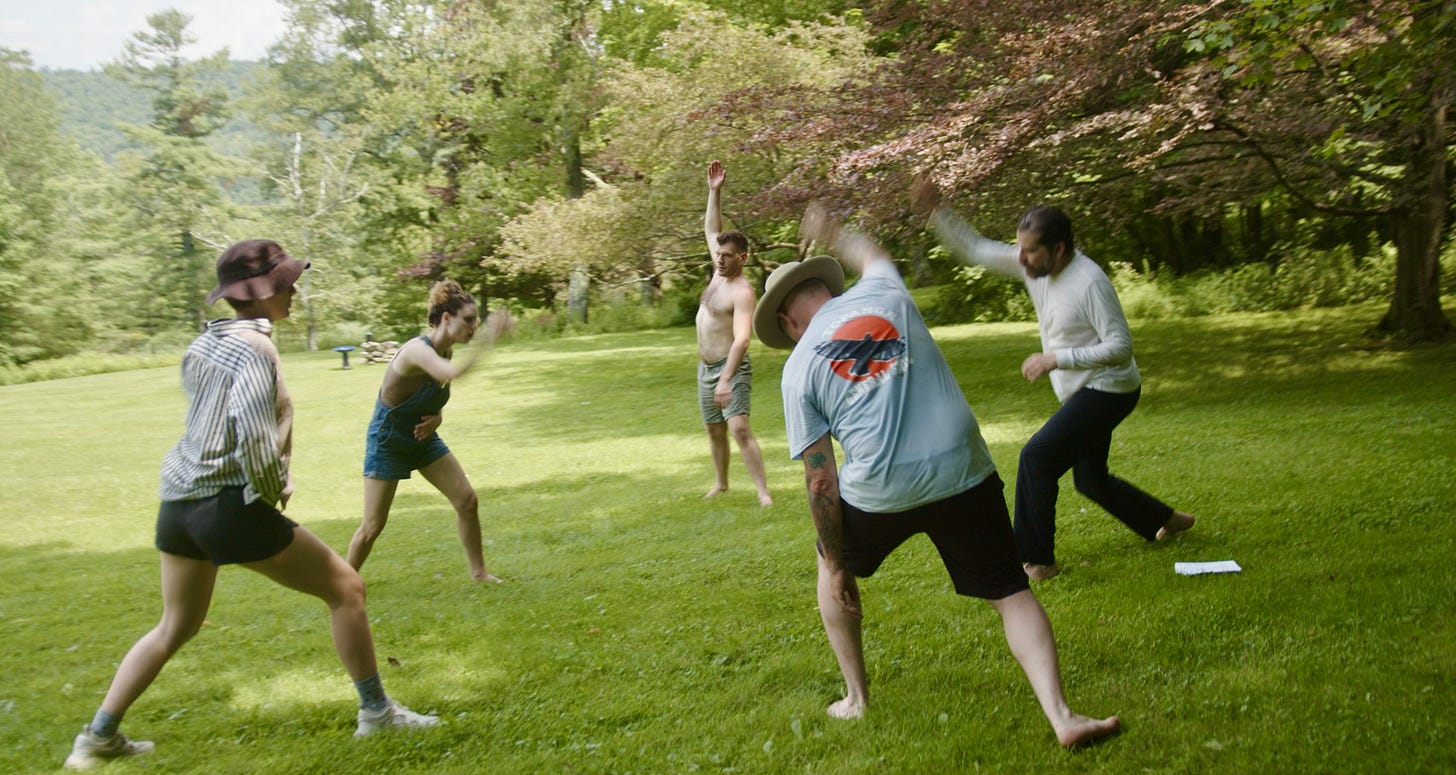“In all the universe, nothing remains permanent and unchanged but the spirit.”
- Anton Chekhov, The Seagull
Through revival, plays and their playwrights produce new meanings and understanding, becoming portals for the soul and contemporary culture. Since the pandemic, Anton Chekhov’s plays are everywhere. At the turn of the twentieth century, before the Russian Revolution, Chekhov, a decadent Russian playwright, explored feelings of nostalgia and the inner world. He has made his grand return to New York stages with a master class production of Uncle Vanya, directed by Jack Serio, in a loft in the Flatiron district, playwright Thomas Bradshaw’s version of The Seagull called Seagull/ Woodstock, NY, at The New Group starred Parker Posey and Hari Nef, and during the pandemic, director Celine Song produced The Seagull in The Sims. Later this spring, a new adaptation of Uncle Vanya by Heidi Schreck, starring Steve Carrell as the title character, will be performed at Lincoln Center. Chekovian Renaissances occur when a turbulent culture is looking for its spirit again.
As a drama critic The Seagull, Chekhov’s play about the theatre and its artists has my heart. Now Adult Film, a Brooklyn-based theatre and film company led by actor and director Ryan Czerwonko, is embarking on a year-long exploration of the play, culminating in public performances this coming spring at Rutgers Presbyterian, Upstate New York, and a documentary film directed by Meg Case and Brad Porter called Chekovian, taking inspiration from Vanya on 42nd Street and Madonna: Truth or Dare. Adult Film’s theatrical work centralizes ambiguity, our dream lives, sexuality, and irrationality. The union of Chekhov and Adult Film is a match made in heaven. Chekhov puts the characters' spiritual lives on the platform, and he was writing at a time of transition for Russia. Adult Film was formed after the pandemic, a period of significant changes within the country and the theatre itself. With recent essays exclaiming the collapse of the American theatre following the pandemic, many companies are still struggling to adjust to the changing desires of audiences and have ignored the cosmic nature of the very art form they practice. At Adult Film, the boundaries between theatre and film merge, honoring both as pagan art forms. Furthermore, they follow a long tradition of actor-based theatre companies such as the Group Theatre and the Actors Studio. Through their synthesis of theatrical tradition, popular culture, and intensive actor training, Adult Film is the future of the American theatre.
Konstantine, played by Czerwonko in the production, hopes to bring new theatrical forms into the world. Still, he meets resistance from many around him, especially his mother, Irina, a great stage actress in Russia. Konstantine doesn’t respect his mother’s style of theatre, calling it “cheap,” and he competes with the celebrated writer Trigorin for his mother’s love and attention. “The tragedy of Konstantine is that he can’t accept difference. He can only strive for his perfect ideal, which is impossible because we have to settle and compromise in our work, in our lives, in our relationships… he can’t deal with that, and that’s why he kills himself in the end,” says Czerwonko. Konstantine fails to realize that he stands on the shoulders of greatness and must honor the past while trying to break through to the future. His gunshot still rings to this very day—an inability to deal with ambiguity eventually leads to the death of the spirit or culture.
Konstantine’s love interest is Nina, played by Mia Vallet, an up-and-coming actress and dramatic mirror to Arkadina. She lives a conventional religious lifestyle; Konstantine’s bohemian family estate seduces her. His love for Nina is unrequited, for she is in love with Trigorin. It drives him insane, leading him to kill an actual seagull and present it to her as a gift of his love and affection. It is Chekhov making fun of his propensity for symbolism. Nina is a realist, and Konstantine is a symbolist.
Today, Nina might be an e-girl you would see at a scene party, attracted to the successful artist. Vallet says, “Nina feels very immediately contemporary to me– Being aspirational, a striver, enraptured by talent and celebrity, and finding that sexuality becomes the channel for one’s access to those things, with unfortunate consequences.” At the end of the play, Nina returns to the estate after losing her baby with Trigorin. She has woken up to the sobering reality of life, and she accepts its consequences. “Konstantine is hiding in metaphors. Nina says I have no defense,” says Czerwonko.
In mid-July, early footage of Chekovian premiered at a fundraiser for Adult Film’s new space. It showed actors Christopher Jon Martin and Carlos Dengler in an exercise called “yielding and offering” together—their bodies intertwining against a backdrop of trees overscored with a beautiful piano melody. The company has been retreating to Hudson, New York, for rehearsal. Nature is vital to all of Chekhov’s plays, especially The Seagull. He sees the transient qualities of it. In the first scene, a storm is approaching the estate as they watch Konstantine’s play, which feeds the characters' mental states as they enter the stage; an actor must be intimate with Nature. The improvisational monologue is an exercise Czerwonko learned from the Tony-nominated actor Maria Dizzia, which has been indelible to the company's artistic process. It helps the actor be present with the experience in front of them, much like Nina at the end of the play. In a class Dizzia taught at the Adult Film space in Bushwick, she tells her students, “Your job, as an actor, is to lend reality to the scene.” Nature is the ultimate reality, and Chekhov knows this.
In Chekhov, “God and Tolstoy and the aristocracy are gone. The people are left to themselves,” writes Stella Adler. We are still reconciling the loss of “God” in culture, and following the pandemic, economic anxiety has risen. It has led to a disorientation, causing people to cling to what is familiar or deemed “safe.” It is easy to long for the past, but Chekhov reminds us we are forever moving toward the future, and with that comes uncertainties. Adler goes on to write, “The individual he (Chekhov) admires most is the one who tries.” Pessimism and cynicism dominate in culture today, especially within the theatre, and at Adult Film, we see a company of working actors pushing forward to build something new. With Chekhov in their repertoire, Adult Film restores beauty and the theatrical spirit to break free from contemporary cultural malaise.
Josh Feye is a drama critic and dramaturg in Brooklyn, New York. Subscribe to his drama criticism substack
To see one of Adult Film’s productions, click here. Listen to Josh on Cracks in PoMo discussing Paglia’s No Law in the Arena, Ryan on James Dean and James Franco, and Stephen on Josh’s pod on Heroes of the Fourth Turning and Deneen’s Why Liberalism Failed.
Please consider signing up for a paid subscription to this page for more riveting content. If you’re new to Cracks in Pomo, check out the About page or read up on our Essentials. Also check out our podcast on Spotify, Apple, and YouTube and follow us on Instagram and Twitter.
MASA tortilla chips by Ancient Crunch is offering our followers 10% off their order with the promo code CRACKSINPOSTMODERNITY. Click here to redeem.
photos courtesy of Adult Film








